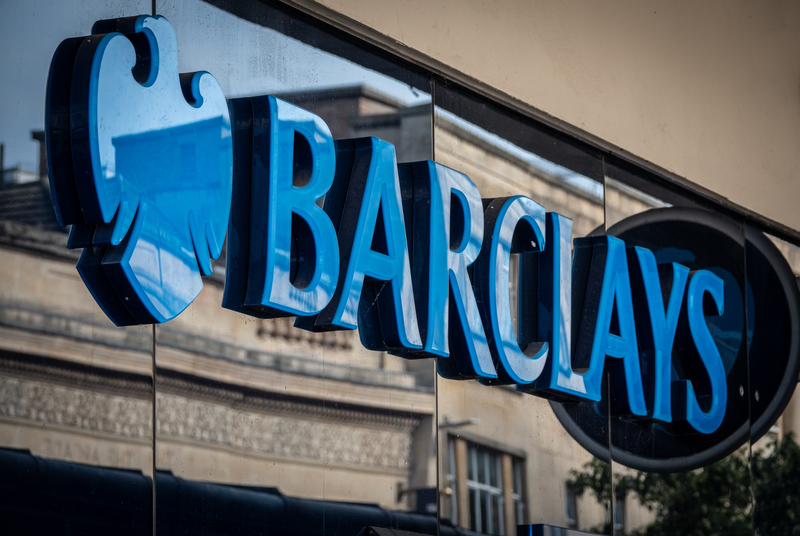The FCA has fined Barclays £40m ($50.4m) for its failure to disclose certain arrangements with Qatari entities during a 2008 capital raising. The FCA found that Barclays’ conduct was “reckless and lacked integrity.”
The fine comes after Barclays dropped a legal challenge to the Upper Tribunal and withdrew its References against the FCA’s planned action. The regulator had previously decided to impose a £50m ($63m) fine.
The FCA’s investigation found that Barclays paid fees to Qatari entities that were key investors linked to emergency fundraising efforts following the 2008 financial crisis. The bank paid one Qatari entity £322m ($406m) in fees over a number of years, which it did not disclose to shareholders.
The FCA said that the events in 2008 were of “national importance as banks sought emergency recapitalisation.” However, the regulator has “a primary objective to ensure market integrity” and “banks should treat their obligations to the market and shareholders seriously.”
The FCA’s fine is a reminder that banks need to be transparent with their investors.
A spokesperson for Barclays said that it “does not accept the findings of the Decision Notices and this has been acknowledged by the FCA”. However, the bank said that it has “concluded that the interests of the Bank, its shareholders and other stakeholders are best served by withdrawing the References.”
The fine is a significant one, but it is not the largest amount that Barclays has been fined by the FCA. In 2015, the bank was fined £72m ($91) for “failing to minimise the risk that it may be used to facilitate financial crime.”
The FCA’s fine is a reminder that banks need to be transparent with their investors. The regulator will continue to take action against banks that fail to meet their obligations.
Steve Smart, joint executive director of enforcement and market oversight at the FCA, said: “Barclays’ misconduct was serious and meant investors did not have all the information they should have had. However, the events took place over 16 years ago and we recognise that Barclays is a very different organisation today, having implemented change across the business.
“It is important that listed firms provide investors with the information they need.”
Expert comment
We asked Mark Taylor, founding partner at Ibex Compliance for his views on the fine and he has provided some key observations and lessons learned connected to governance, compliance and risk. He also looks at why the investigation took so long and the reasons for Barclays dropping their challenge to the FCA’s findings.
Learning points
- Transparency is crucial: The FCA found that Barclays failed to disclose significant payments to Qatari entities during its fundraising efforts. This lack of transparency can undermine investor trust and market integrity, especially during times of financial crisis.
- Regulatory compliance: The case underscores the importance of adhering to regulatory requirements. Barclays’ actions were deemed “reckless and lacking integrity,” emphasizing that firms must ensure compliance with disclosure rules to avoid severe penalties.
- Impact of financial crisis on decision-making: The events occurred during the 2008 financial crisis, which may have influenced Barclays’ decision-making. However, the FCA’s stance is clear: financial stress does not excuse a lack of transparency or integrity in reporting.
- Long-term consequences: The case illustrates that misconduct can have long-lasting repercussions, as seen in the lengthy investigation and eventual fine, which was settled after more than a decade of scrutiny.
- Organizational change: Barclays has since undergone significant changes in leadership and governance. This case serves as a reminder that organizations must continuously evolve their practices and controls to prevent similar issues in the future.
Length of investigation
Why did it go on for so long?
- Complexity of the case: The events surrounding the 2008 capital raising involved intricate financial arrangements and significant sums of money, making the investigation complex and time-consuming
- Multiple investigations: Initially, the FCA’s investigation began in 2013, but it was paused while the Serious Fraud Office (SFO) pursued its own criminal investigation against Barclays and several executives. This overlap added to the duration as the FCA awaited the outcome of the SFO’s proceedings
- Legal challenges: The case faced various legal hurdles, including appeals and the need for thorough examination of evidence. Barclays initially planned to contest the FCA’s findings, which prolonged the resolution process. The need for thorough examination of evidence and potential appeals contributed to the duration.
- Regulatory scrutiny: Given the national importance of the events during the financial crisis, the FCA was particularly diligent in ensuring that all aspects were thoroughly investigated to uphold market integrity.
- Organizational changes: Over the years, Barclays underwent significant changes in leadership and governance, which may have influenced the pace and direction of the investigation as the organization evolved
Why did Barclays drop its challenge to the Upper Tribunal?
Barclays decided to drop its challenge against the FCA’s findings regarding the 2008 Qatari investment deals for several reasons:
- Desire to move on: Barclays expressed a wish to “draw a line under” the issue, especially given the significant time that has passed since the events occurred. The bank aimed to focus on its current operations rather than prolonging a legal battle over past action.
- Financial considerations: The fine was reduced from £50 ($63m) to £40m ($50.4m) after Barclays dropped the appeal. The bank had already set aside funds to cover this penalty, meaning the financial impact would be minimal.
- Recognition of change: The FCA acknowledged that Barclays is a very different organization today, having implemented substantial changes since 2008. This recognition may have influenced Barclays’ decision to avoid further legal disputes.
- Stakeholder interests: Barclays concluded that withdrawing the appeal was in the best interests of the bank, its shareholders, and other stakeholders, despite not agreeing with the FCA’s findings.
Overall, the combination of these factors led Barclays to prioritize resolution over continued litigation.
If you have any specific questions or need further details, feel free to ask mark.taylor@ibexcompliance.com
















